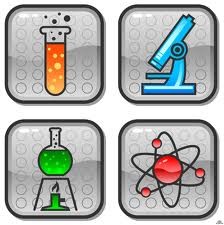

ШАНОВНІ КОЛЕГИ !
На базі Інституту біохімії ім. О.В.Палладіна НАН України продовжує свою роботу міждисциплінарний загальноакадемічний семінар у галузі природничих наук «Актуальні питання фізико-хімічної та математичної біології».
Чергове засідання семінару відбудеться 16-го лютого 2024 р. (П’ЯТНИЦЯ) о 10-30 в Актовій залі Інституту (вул. Леонтовича, 9). З доповіддю «The possible role of hydrogen peroxide molecules in ion therapy of cancer cells» виступить доктор ф.-м.н. професор ВОЛКОВ Сергій Наумович, головний науковий співробітник лабораторії біофізики макромолекул Інституту теоретичної фізики ім. М.М. Боголюбова Національної академії наук України.
До цього листа додаю авторські тези доповіді. Отже, у доповіді мова буде йти за ГОЛОВНУ МОЛЕКУЛУ – молекулу ДНК.
Прийняти участь у роботі семінару можна буде й в онлайн-режимі за адресою:
https://meet.google.com/vpn-obgd-nzk
Запрошую Вас та Ваших колег до участі у роботі семінару.
Дозвольте нагадати Вам, що мета загальноакадемічного семінару полягає у періодичному заслуховуванні та обговоренні наукових доповідей, присвячених застосуванню сучасних експериментальних та теоретичних методів хімії, фізики та математики для вирішення нагальних проблем сучасної біології (зокрема – у галузі біохімії, біофізики, молекулярної та клітинної біології, біоенергетики, геномики, медичної біології, фармакології, нанобіотехнології, системної та синтетичної біології та т.і.).
Організація зазначеного семінару обумовлена прогресуючим розвитком таких «перехресних» наук та наукових напрямів, як біофізична хімія, фізична біохімія, хімічна біофізика, біохімічна фізика, фізико-хімічна біологія, фізика живого, математична біофізика та біохімія, теоретична біологія, біоінформатика, штучний інтелект в біології та медицині тощо.
У подальшому пропозиції щодо виступів з доповідями (тези доповіді – 1-2 стор.) на міждисциплінарному загальноакадемічному семінарі необхідно надсилати на ім’я Костеріна Сергія Олексійовича за електронними адресами:
Анонси щодо засідань семінару та авторські тези доповідей оприлюднюються на сайтах Інституту біохімії ім. О.В.Палладіна НАН України ( biochemistry.org.ua ) та НАН України ( НАН України : Головна сторінка (nas.gov.ua) ), а також розповсюджуються електронною поштою. Слідкуйте за нашими повідомленнями, будь ласка.
Наступне засідання семінару заплановано на березень м-ць 2024 р.
Будемо раді зустрітися з Вами на засіданнях нашого міждисциплінарного загальноакадемічного наукового семінару !
З повагою -
керівник семінару,
академік НАН України,
професор С.О.Костерін
Sergey N. Volkov
Laboratory of Biophysics of Macromolecules,
Bogolyubov Institute for Theoretical Physics,
National Academy of Sciences of Ukraine, Kyiv 03143, Ukraine
E-mail:
To date one of the most promising treatments of cancer diseases is radiation therapy. In this approach the tumor is irradiated with a beam of particles (protons, electrons, neutrons, ions, etc.), which leads to its destruction. Irradiation with protons and heavy ions is the most effective, since these particles passing through a medium loses most of its energy in a certain small area inside the body (at so-called Bragg peak). Thus, there is the possibility of precise alignment of the beam energy peak with the position of cancerous tumor and to transfer most of the beam energy directly to the tumor, minimally damaging adjacent healthy tissue. The approach of ion therapy is now considered as effective and safe method for cancer treatment. But the processes of the deactivation of cancer cells during ion therapy are still poorly studied.
In the presented work the possible mechanisms of action of hydrogen peroxide molecules on DNA activity in the biological cell are studied. Using quantum-mechanical approach the competitive interactions of water and hydrogen peroxide molecules with DNA recognition sites have been analyzed and the advantage of hydrogen peroxide molecules in the formation of complexes with DNA nucleic bases is shown.
The estimation of lifetimes of the complexes of peroxide molecules with DNA atomic groups allow us to formulate the hypothesis about the mechanism of blocking of DNA genetic activity in cancer cells by hydrogen peroxide molecules. Note, considering the complexes of DNA nucleic bases with peroxide, or with water molecules, it was taken into account that at least two hydrogen bonds are necessary for the formation of such stable complexes. These molecules compete with water molecules for interaction with DNA sites and can form long-lived molecular complexes with nucleic bases of the macromolecule.
The results of our study show that the coupling energy between DNA atomic groups and hydrogen peroxides are always more than the same energy for the interaction of DNA sites with water molecules. So, the value of lifetime for the complex of a guanine base with water molecules can be more than in 50 times longer than with water, and with an adenine base - more than in 30 times. Thus, hydrogen peroxide molecules due to formation of stable complexes with DNA atomic groups, can block the processes of genetic activity of DNA macromolecule as a whole.

